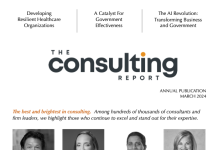Diversity, Equity, and Inclusion (DEI) efforts have been top-of-mind for many organizations seeking to strengthen workplace culture and increase employee satisfaction and retention. While businesses have taken steps, such as appointing DEI officers and promoting initiatives designed to increase inclusivity, recent research from Bain & Company has found that fewer than 30% of employees say they feel fully included at work, with only 16% of Asian men and 20% of Asian women saying they feel fully included.
With the U.S. seeing an increase in violence and racism impacting the Asian-American Pacific Islander (AAPI) community, the need for businesses to understand and support their AAPI employees has become more important than ever. Despite this need, many employers fall into common traps, such as focusing on broad generalizations about Asian American populations, failing to recognize that the Asian American community is not a monolith and missing out on the complexity of the AAPI experience.
"At Bain, we've conducted internal focus groups with Asian American employees to better understand the challenges they face in the workplace," said Karthik Venkataraman, a Partner at Bain & Company and leader in its DEI and Travel and Leisure practices. "We have seen that role models and cultural norms are particularly important to empowering these employees in the workplace. As Asian leaders, we're thinking about how we can share our own experiences and help elevate the voices of others in our communities who might feel less included, and we are helping other leaders across Bain to do the same."
AAPI employees can face a variety of workplace barriers, such as the “Bamboo Ceiling” limiting advancement into leadership roles, as well as everyday discrimination. With only 2% of CEOs identifying as Asian, overcoming a representation gap at the leadership level is of critical importance.
To help businesses develop more inclusive workplaces for all, Bain & Company released a new report, “The Fabric of Belonging: How to Weave an Inclusive Culture,” showing that by actively accounting for cultural differences in systems such as recruitment, performance management, and promotion, a more equitable and inclusive environment can be created for AAPI employees.
The report goes on to suggest that a combination of structured DEI programming and education, professional development, regular coaching, and transparent feedback can all help increase inclusion for all, including Asian American employees.
As job candidates continue the trend of being more discerning when selecting an employer, businesses that put DEI at the forefront of their culture are far more likely to attract and retain a diverse workforce, ensuring they will not miss out on the competitive advantage of having a broad array of experiences and perspectives from which to draw.

























